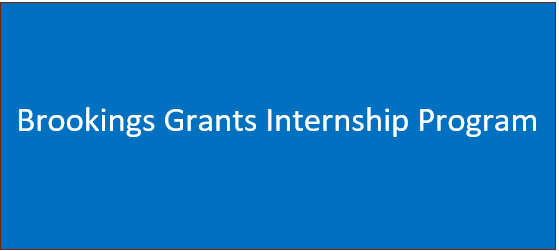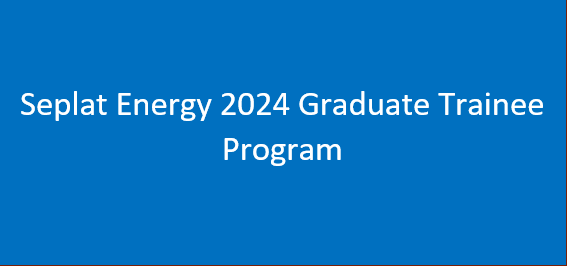As life progresses, circumstances may lead some individuals to miss the opportunity to complete their high school education during the typical teenage years. However, the pursuit of education is a lifelong journey, and obtaining a high school diploma as an adult can open doors to new opportunities and personal growth. In this guide, we will explore various aspects of pursuing a high school diploma as an adult, including the benefits, program types, requirements, challenges, and success stories.
- Eligibility criteria for AHSD:
- The Benefits of Obtaining a High School Diploma:
- Description of AHSD:
- Required courses for AHSD:
- Fees associated with AHSD services:
- Age Limit:
- International Enrollment:
- Enrollment Deadline:
- Success Stories of Adults Who Obtained Their High School Diploma:
- Differences between a GED and a High School Diploma for Adults:
- Resources and Support Available for Adults Pursuing a High School Diploma:
- Preparing for the High School Equivalency Exam:
- WHAT YOU SHOULD KNOW
- Conclusion:
Eligibility criteria for AHSD:
To earn an adult high school diploma, individuals must meet specific eligibility criteria:
High School Graduation Status: Applicants should not have graduated from high school. Age Requirement: A minimum age of nineteen years is required. Course or Credit Completion: Completing specified course or credit requirements is necessary. Transcript Submission: A comprehensive high school transcript is required. Registration Form: Submission of the registration form is mandatory. Why Pursue a High School Diploma as an Adult:
Is a High School Diploma Right for Adults?
There are numerous reasons why adults may choose to pursue a high school diploma later in life. It could be to enhance career prospects, fulfill personal goals, set an example for their children, or simply acquire the knowledge and skills they missed earlier. Regardless of the motivation, obtaining a high school diploma as an adult can lead to increased self-esteem, improved job prospects, and a sense of accomplishment.
The Benefits of Obtaining a High School Diploma:
• Enhances employability and job opportunities. • Serves as a foundation for further education. • Boosts confidence and improves communication skills. • Open doors to personal development and lifelong learning.
Description of AHSD:
The Adult High School Diploma recognizes academic course credits from diverse sources, providing flexibility to learners. Credits earned through high school, night school, community college, university, correspondence, and other provinces are all considered. Issued by the Province of New Brunswick, the AHSD holds recognition from colleges, universities, and employers, making it a valuable credential.
Required courses for AHSD:
Achieving an adult high school diploma involves completing nine specific courses or credits. These encompass a range of subjects, ensuring a well-rounded education:
Mathematics (Grade 11 level) English (Grade 12 level) Science (Grade 11 or Grade 12 level) French (Grade 10, Grade 11, or Grade 12 level) History/Social Studies (Grade 11 or Grade 12 level) Computer Literacy (Grade 10, Grade 11, or Grade 12 level) Three Optional Courses or Credits (Grade 11 or Grade 12 Level) Transcript/Diploma Request Process:
For individuals who have successfully earned their AHSD and need transcripts or duplicate diplomas, the process is straightforward:
Online: Visit www.snb.ca/ahsde and navigate to the related links section.
By Telephone: Contact 1-888-762-8600 to make your request.
In-person: Visit the nearest Service New Brunswick (SNB) office.
Fees associated with AHSD services:
While pursuing your AHSD, it’s essential to be aware of the associated fees.
Request for Transcript of Marks: $5.00
Request for an Adult High School Diploma: $10.00
Please note that administration fees are non-refundable, and these fees exclude the harmonized sales tax (HST).
Age Limit:
There is no age limit for enrollment at Smart Schools. The institution welcomes students aged 11 and up, emphasizing inclusivity and accessibility for learners of all ages.
International Enrollment:
Smart Schools extends its enrollment opportunities to students from various geographic areas, including those residing outside the United States. For non-U.S. citizens, there is a specific program called Smart Schools International. For more information, interested individuals can visit the official website at smartschools.us.
Enrollment Deadline:
Smart schools follow a flexible enrollment system with no specific deadlines. Prospective students can enroll online at any time, 24/7. Additionally, individuals can contact Smart Schools during business hours at (844) 467-5278 to discuss enrollment and receive guidance.
Getting Started:
Upon completing the enrollment process, most students can start their first class within a day or two. Once enrolled, students gain access to Smart Schools’ exclusive online learning system, allowing them to begin their first course immediately. All that is needed is a computer with internet access to get started on the educational journey with Smart Schools.
Success Stories of Adults Who Obtained Their High School Diploma:
Highlighting the success stories of adults who successfully earned their high school diplomas can inspire and motivate others facing similar challenges. These stories showcase the transformative power of education and its positive impact on individuals’ lives.
Differences between a GED and a High School Diploma for Adults:
It’s important to distinguish between a high school diploma and a General Educational Development (GED) certificate. While both signify educational attainment, a diploma is earned by completing a traditional high school curriculum, whereas a GED is obtained by passing a standardized test. Understanding these differences can help individuals choose the path that aligns with their goals.
Importance of Adult Education and Lifelong Learning:
Emphasizing the importance of adult education and lifelong learning reinforces the idea that learning is a continuous process. Adult education contributes to personal development, career advancement, and societal progress. Lifelong learning helps individuals adapt to changing circumstances and stay informed in an ever-evolving world.
Resources and Support Available for Adults Pursuing a High School Diploma:
Numerous resources and support services are available for adults pursuing a high school diploma. These may include tutoring services, counseling, career guidance, and online forums for connecting with fellow adult learners. Utilizing these resources can enhance the learning experience and provide valuable assistance.
Preparing for the High School Equivalency Exam:
For those considering alternative paths, such as obtaining a GED, thorough preparation for the high school equivalency exam is crucial. This may involve enrolling in preparatory classes, using study materials, and taking practice exams to build confidence and readiness for the test.
WHAT YOU SHOULD KNOW
Conclusion:
In conclusion, obtaining a high school diploma as an adult is a commendable and valuable achievement. It opens doors to new opportunities, enhances personal development, and serves as a foundation for future educational and career pursuits. Despite the challenges, the benefits far outweigh the obstacles, making the journey toward earning a high school diploma a rewarding and transformative experience.



